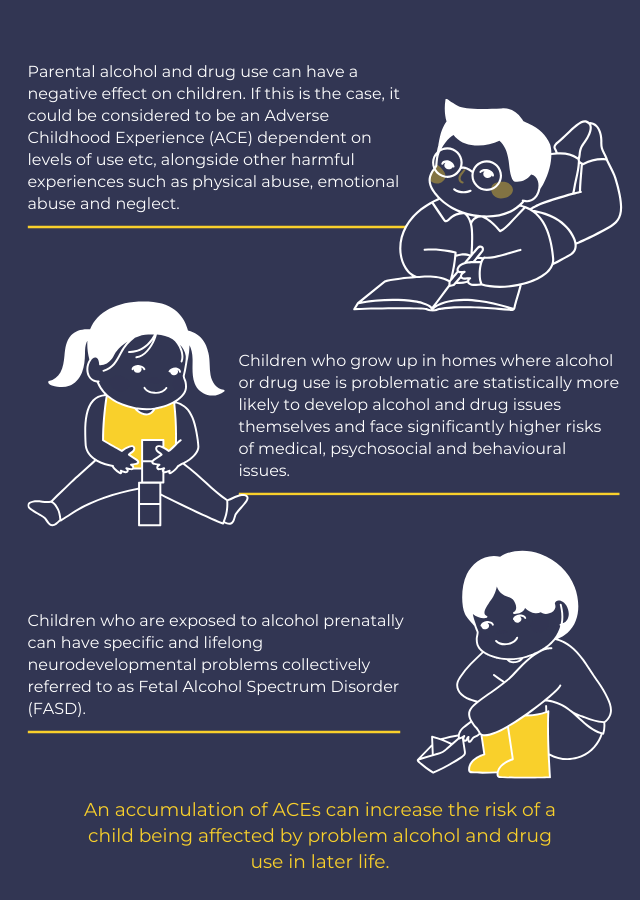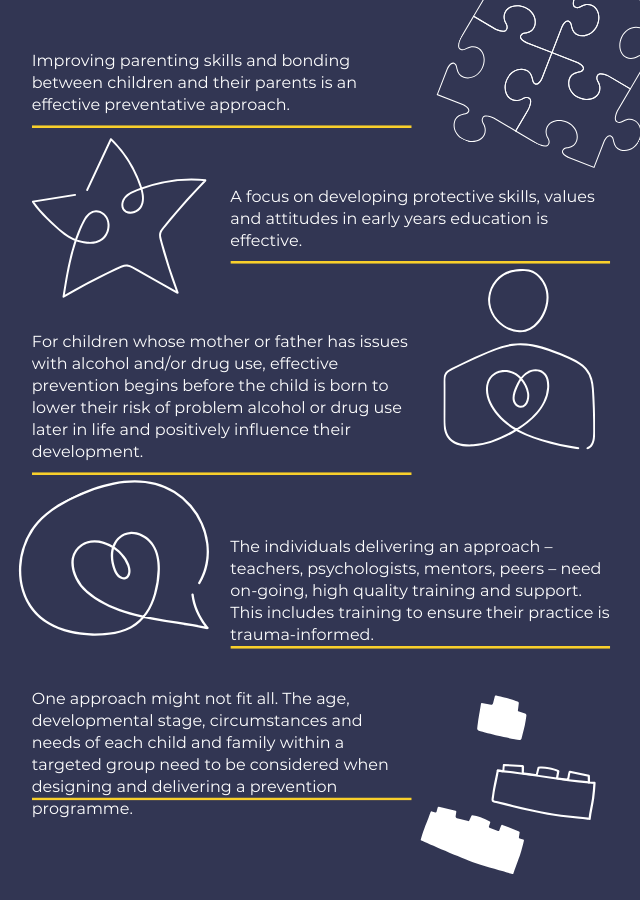
This evidence briefing focuses on what works with regards to alcohol and drug prevention in pre-birth, infancy and early years. It relates to parents during pregnancy and infants and children up to five years old. However, it is important to note that there is a large cross-over of what works with the evidence briefing on children and young people.
- Good Practice
- Potential Stakeholders
- Early years education (including childcare services)
- Parental and postnatal care (including health visitors)
- Families and children
- Third sector
- Police Scotland
- Social Workers
- Full Evidence Briefing
To view the full Evidence Briefing for Children and Young People please click HERE.

